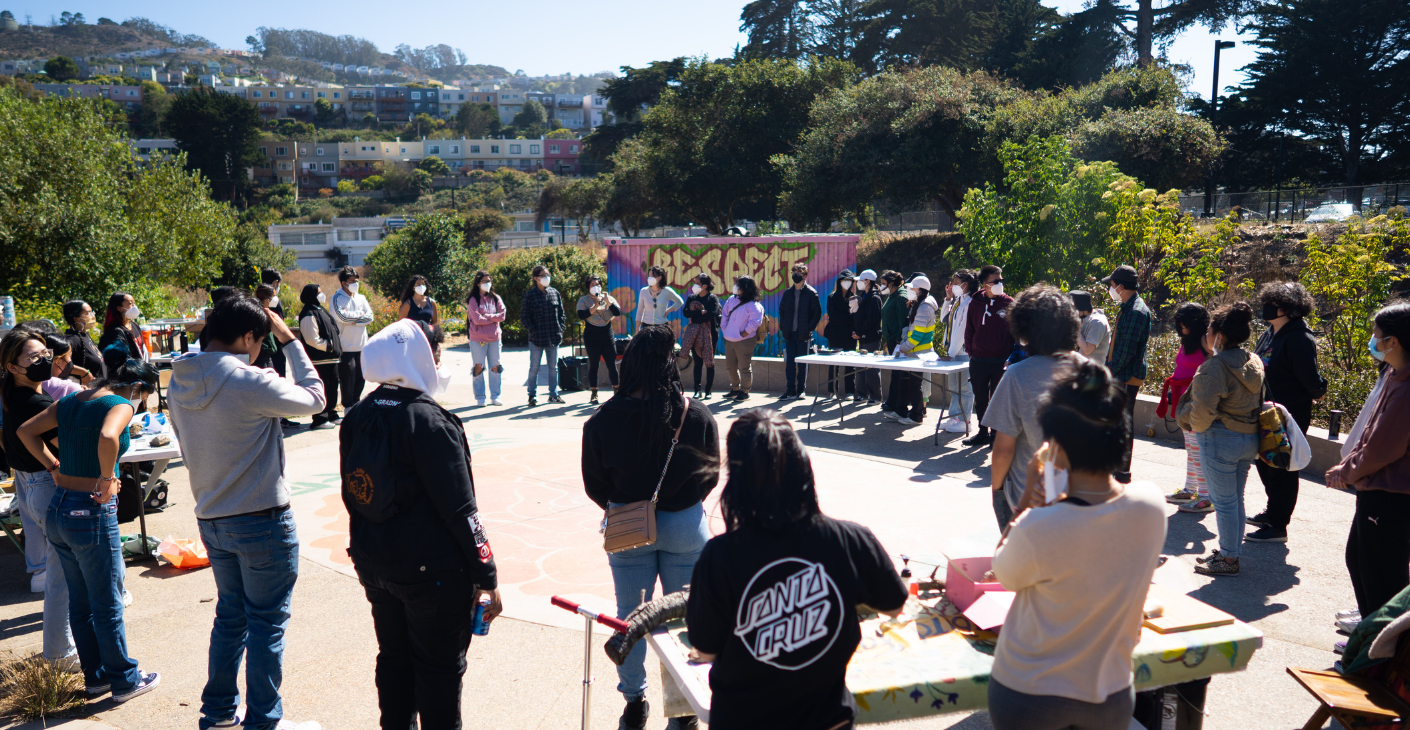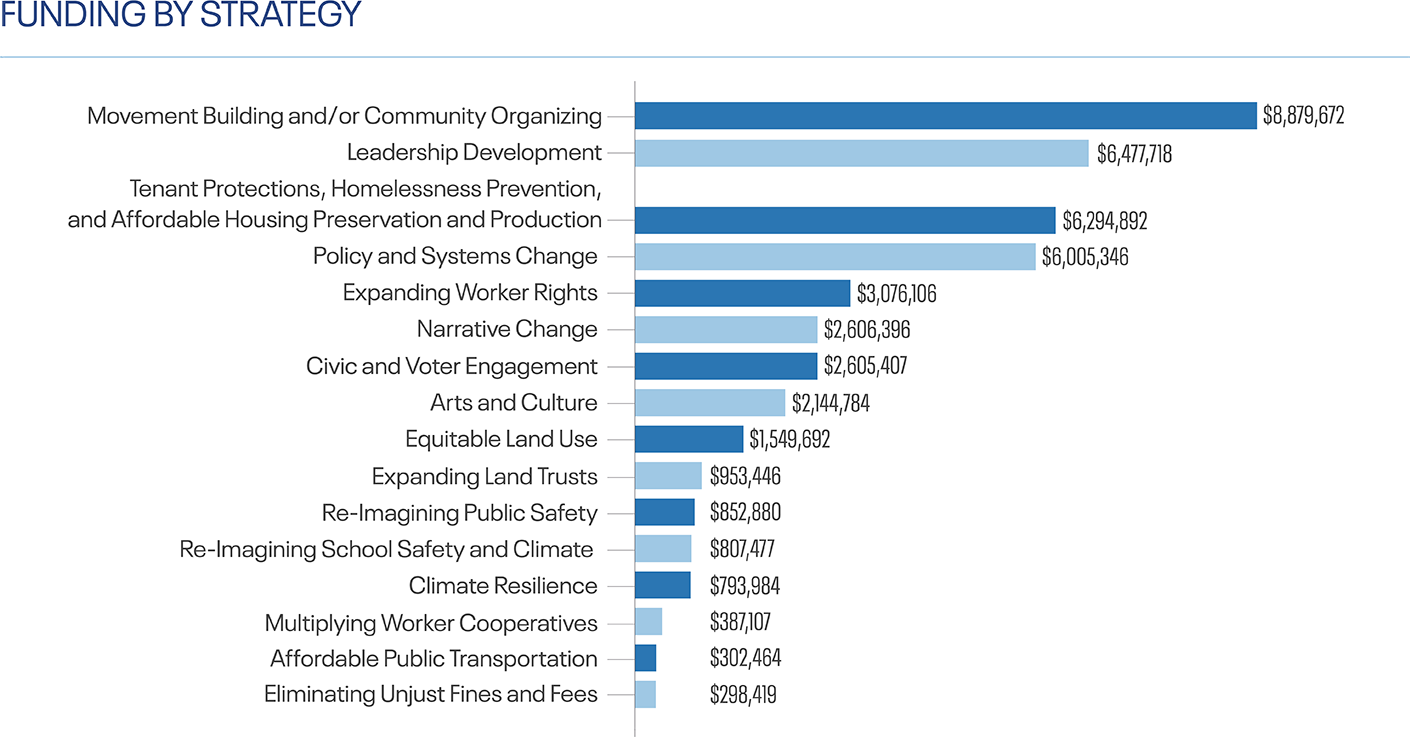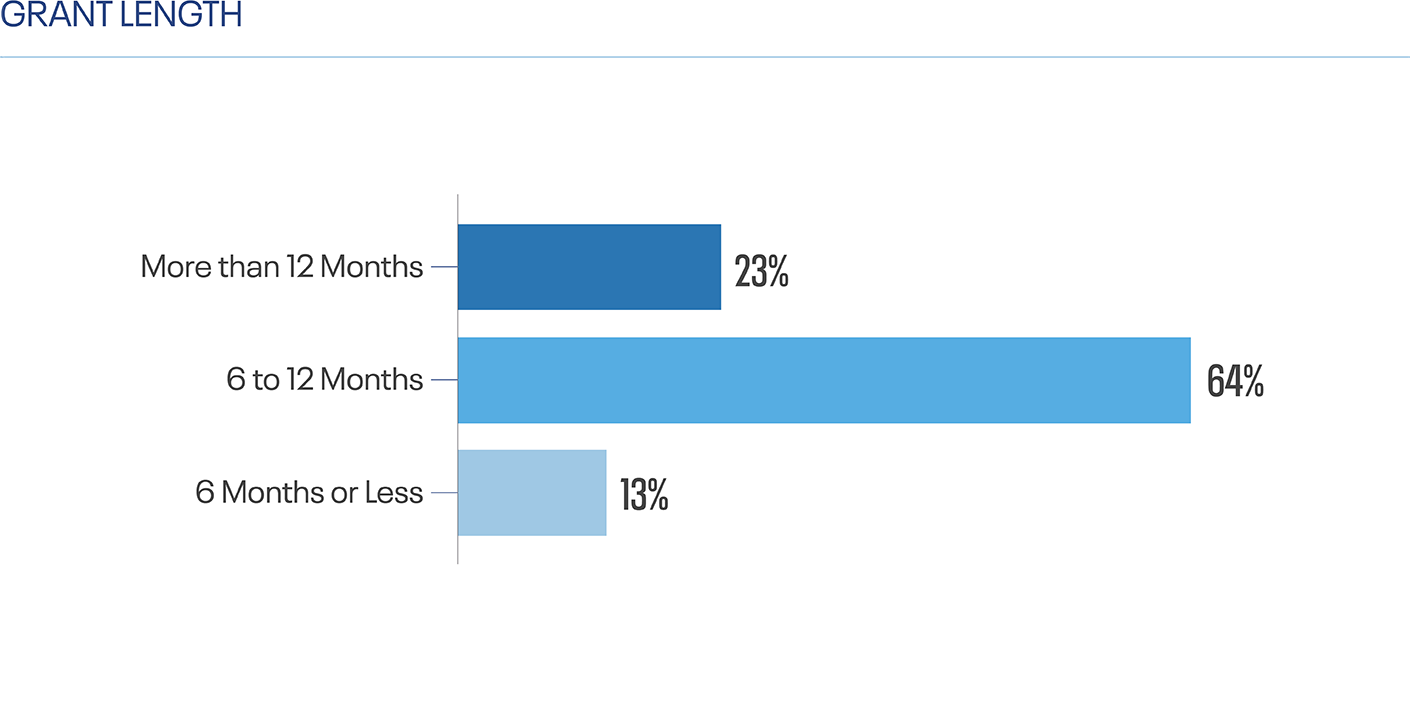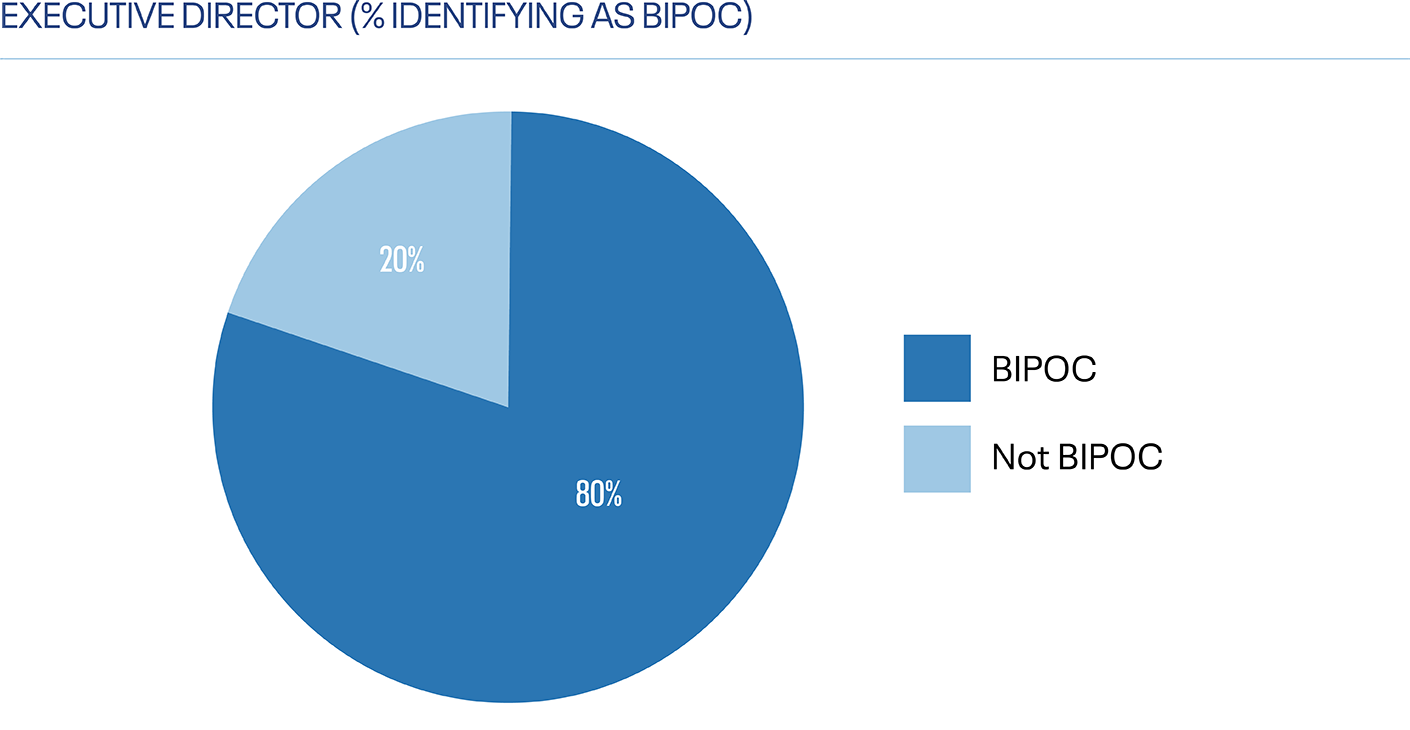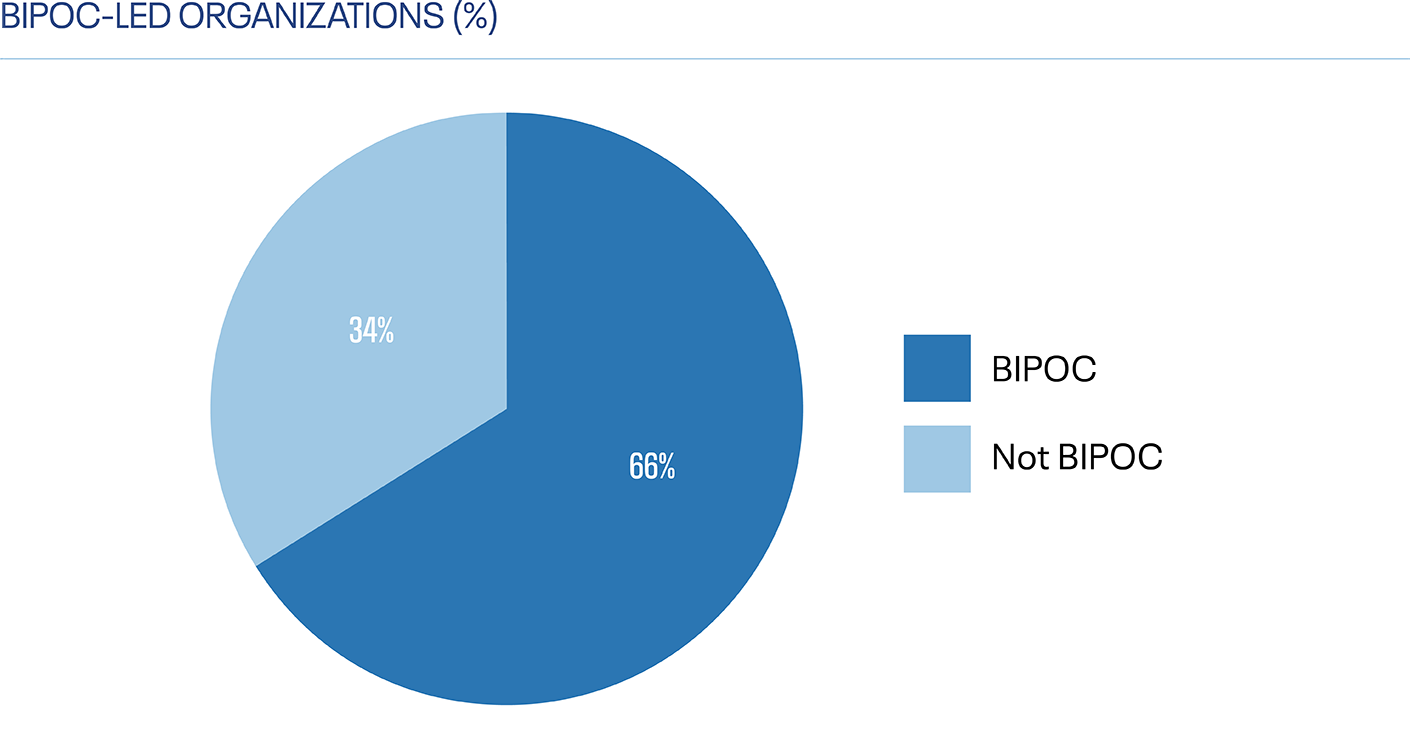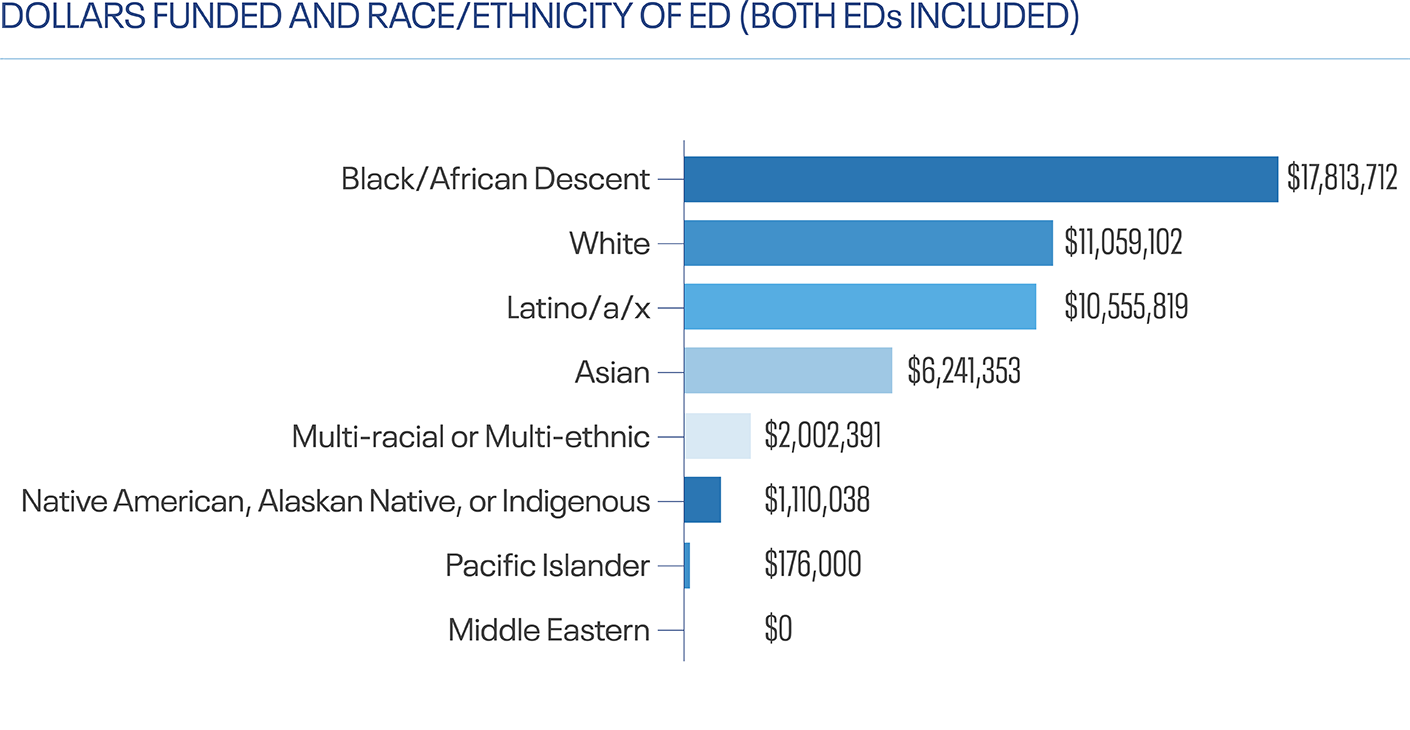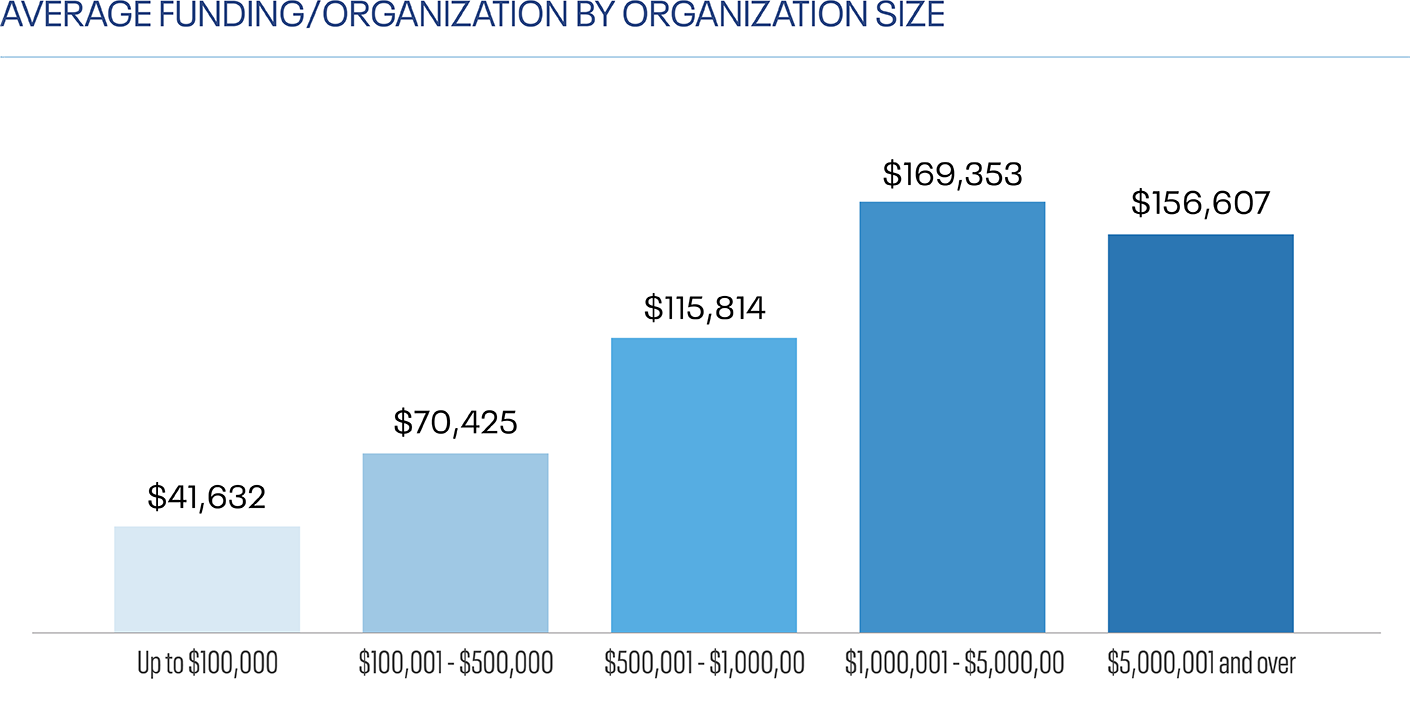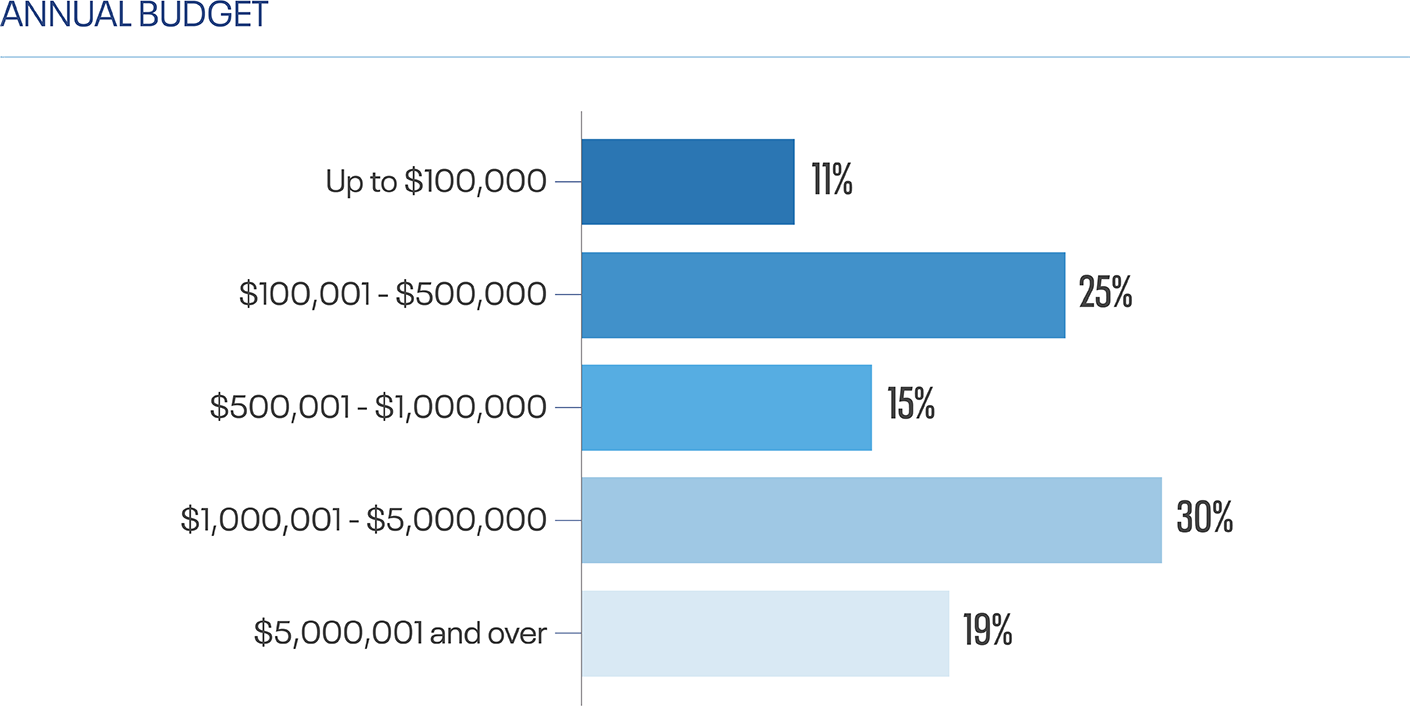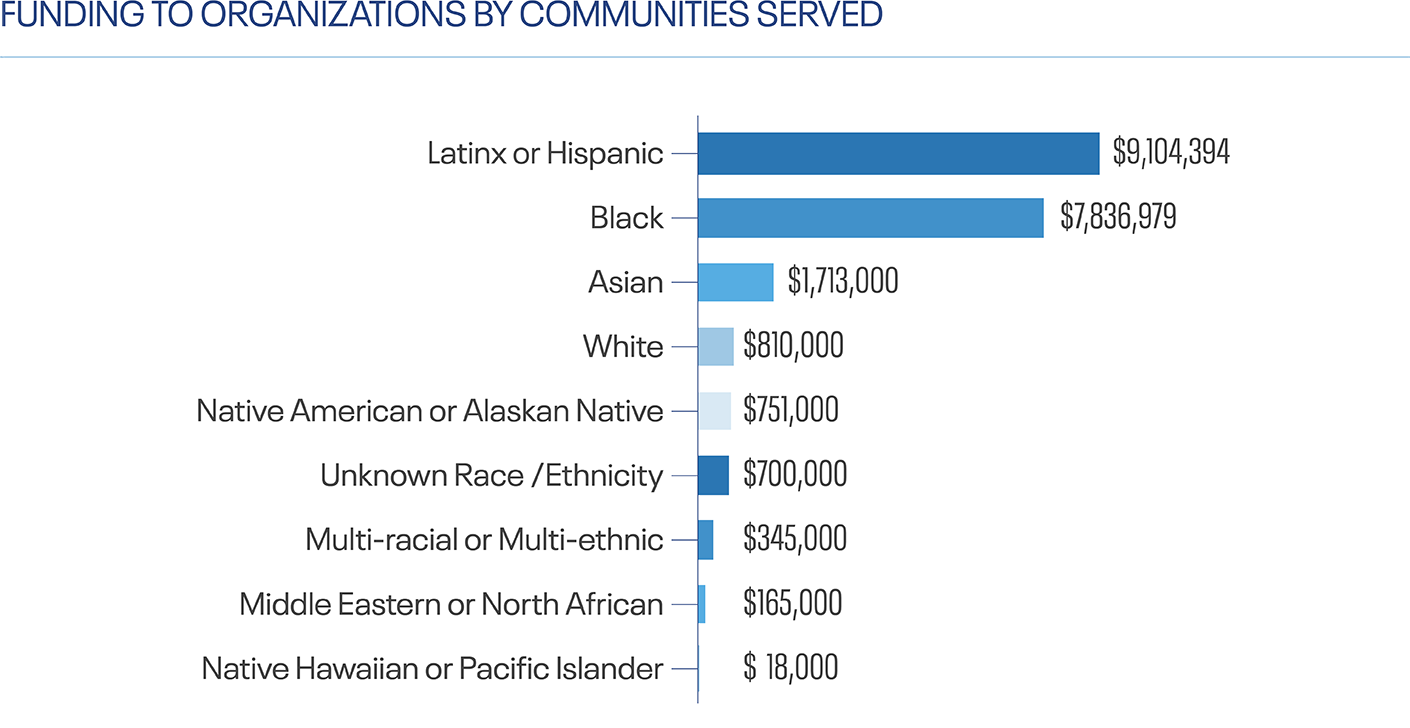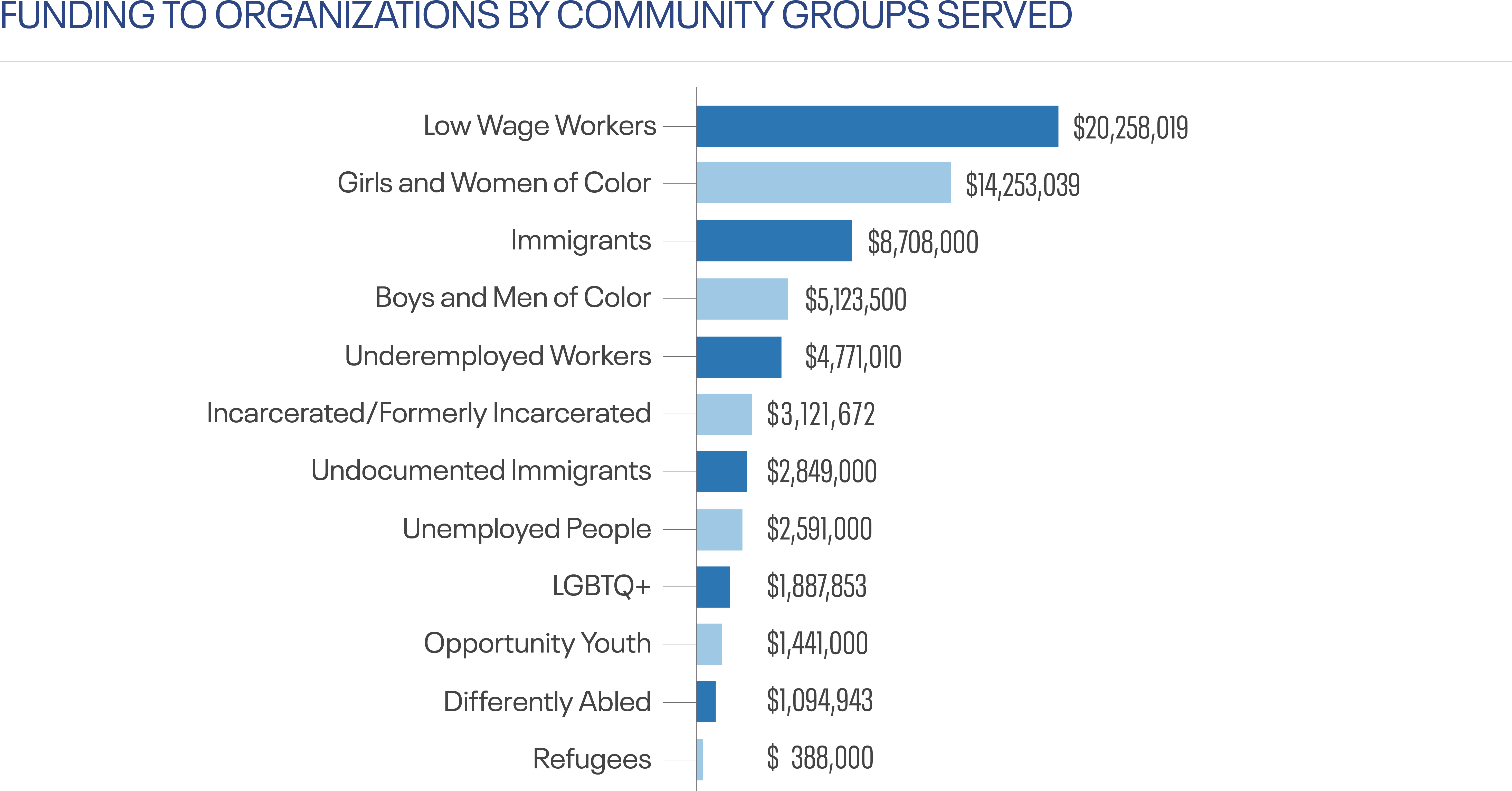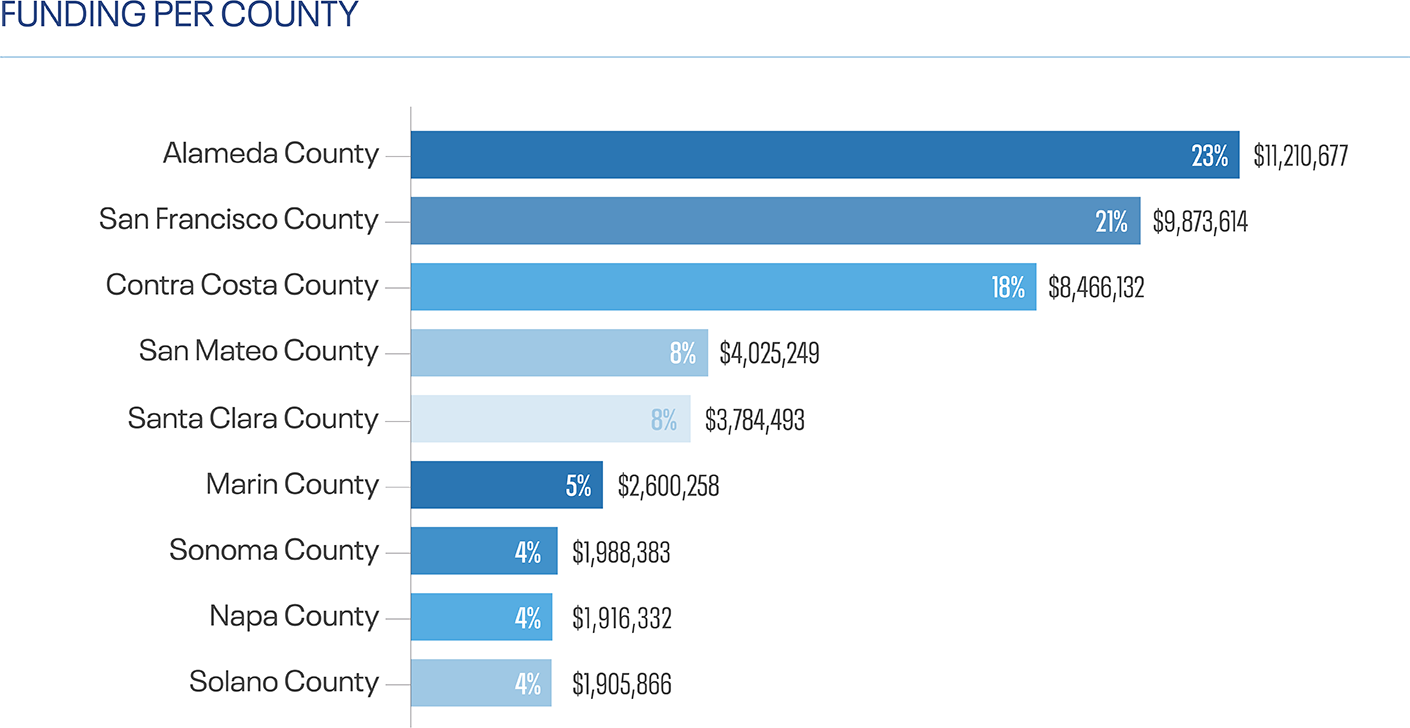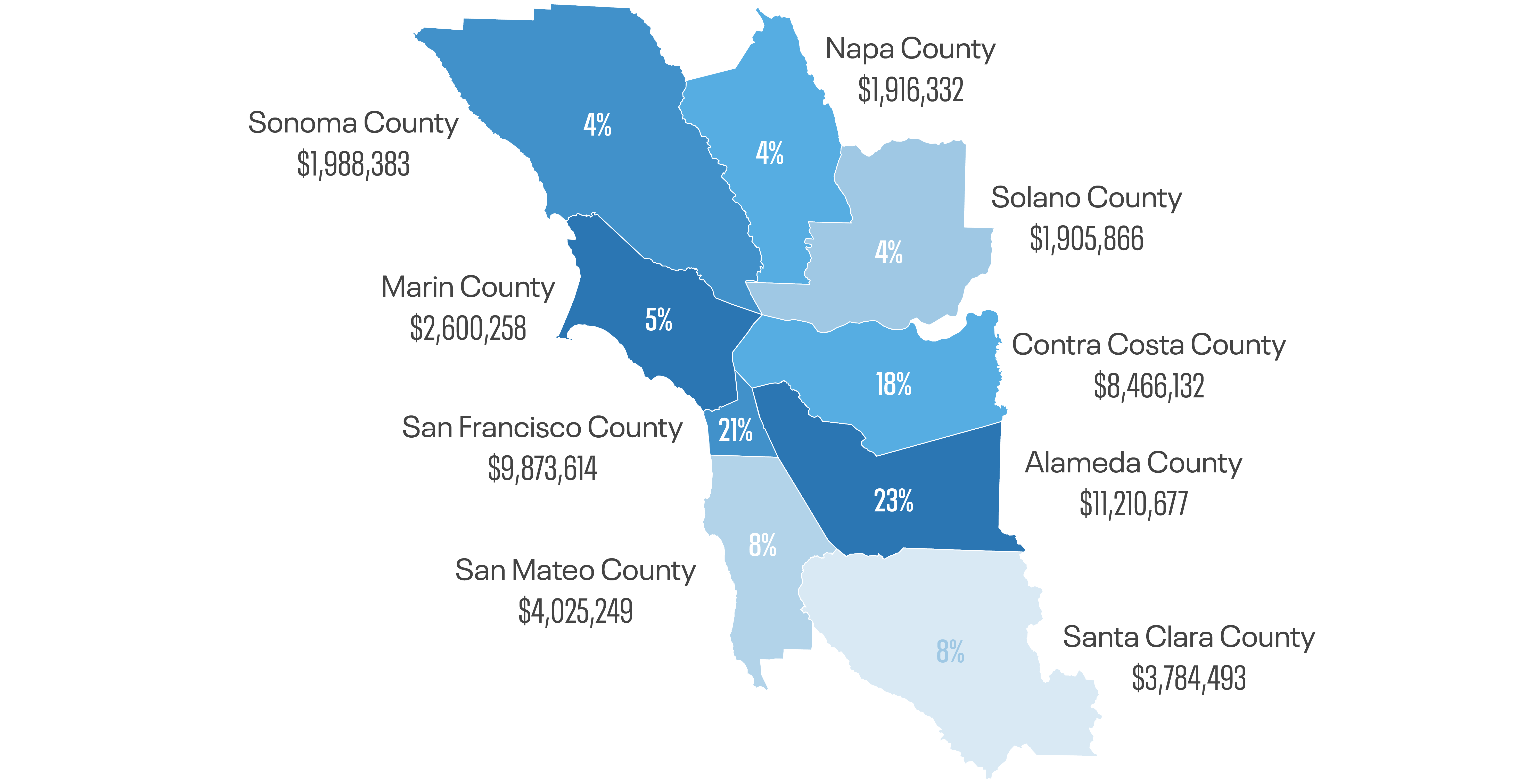San Francisco Foundation is fulfilling our promise to be more transparent and to hold ourselves publicly accountable to our values and aspirations. Our programmatic grantmaking – made possible by our endowment – is one of the main ways we advance our commitment to racial equity, through the funding of many kinds of nonprofit organizations – arts, leadership development, housing, movement building, just to name a few – all through an equity lens. We want to be clear about where we are hitting the mark, where we are missing it, and what we are committed to change.
Every year, we analyze our programmatic grantmaking to identify where and how we support local nonprofits, who leads the organizations we fund, and which communities are being supported through our grantmaking. The following key findings show that we are moving substantial resources to BIPOC-led nonprofits and communities of color to support systems change in our region. This analysis informs our internal decision-making and provides useful context and accountability with our grantees, partners, and funders. Read more about this and other efforts in trust-based philanthropy from Raquiba LaBrie, SFF’s Vice President of Programs.
Snapshot of FY23 Programmatic Grantmaking
We invite you to review our FY23 programmatic grants data (July 1, 2022 – June 30, 2023), which offers a snapshot of the foundation’s program grants. We made 560 grants to 434 organizations and seven individuals. Grants ranged from $1000 to $2.1 million. The average grant was $85K.
FY23 Programmatic Grantmaking Data Snapshot(July 1, 2022 – June 30, 2023) |
| $47.8 million granted |
| 560 Grants |
| 434 Organizations |
| 7 Individuals |
| $85K Average grant size |
| 80% of Executive Directors identify as BIPOC* |
| 66% of Organizations are BIPOC-led* |
| 96% of Organizations serve majority BIPOC communities |
Data excludes organizations and grants for which information was not available.
*BIPOC-led is defined as 1) the Executive Director identifies as BIPOC, 2) more than 50% of the organizational leadership identifies as BIPOC, and 3) more than 50% of the Board identifies as BIPOC.
In the past two fiscal years, our support for BIPOC-led organizations* and organizations that serve BIPOC communities remained constant. This year and last year, 80% of all equity-focused grantees were BIPOC-led. Similarly, 96% of our grantee partners reported working to improve outcomes for BIPOC communities in our recently completed fiscal year.
We are listening to feedback from our grantee partners and responding to their demands for more multi-year support. While we have made some progress in increasing our proportion of multi-year grants, the overall percentage is still relatively modest at 23%. It’s important to note, however, that the percentage of overall grantmaking dollars that went to multi-year grants reached a new high of 44%. Currently, a staff working group is developing recommendations to help us increase our total percentage of multi-year grants and dollars in a way that can be sustained long-term.
Click on the sections below to learn much more about our programmatic grant making.
Download this list to see all funded organizations and individuals.
Grants
We fund a wide range of interconnected strategies that work together to make our region more equitable, healthier, happier, and more prosperous. Grants made from July 2022 to June 2023 that supported movement building and community development received the most funding at $8.8 million, followed by leadership development with $6.4 million and tenant protections, homelessness prevention, and affordable housing preservation and production (4Ps) at $6.3M
The majority of grants lasted from 6-12 months (64%) with 23% of grants lasting more than a year. In total, 44% of total grantmaking dollars went to grants lasting more than one year
Organizations
Across organizations with available data, 80% had Executive Directors who identified as BIPOC and 66% were BIPOC-led (defined as the Executive Director identified as BIPOC, greater than 50% of the organization leadership identified as BIPOC, and greater than 50% of the board identified as BIPOC). This includes data for organizations with Co-Executive Directors.
Black-led organizations received the most funding ($17.8 million), followed by White-led organizations ($11.1 million), Latino/a/x-led organizations ($10.), and Asian and Pacific Islander-led organizations ($6.4M).
Nearly half of the organizations had annual budgets of up to $1 million (49%) and nearly a quarter had budgets over $5 million (19%). Larger organizations received, on average, larger amounts of funding than smaller organizations.
Communities
Of organizations with information on communities served, 96% served the majority of BIPOC communities.
Funding to organizations working with majority Latinx communities was $9.1 million, followed by Black ($7.8 million) and Asian ($1.7 million) communities.
Geography
Organizations working in centrally located Bay Area counties received majority of funding (Alameda, San Francisco, and Contra Costa). For organizations working in multiple counties, funding is allocated equally across all counties in which they work.
Data and Methodology
This analysis reflects our latest completed fiscal year, which ended on June 30, 2023. Data is collected from a dataset generated from SFF’s revised grant application and organizational profile, which asks grantees to share information about demographics, organizational characteristics, grant strategies, and more. For this analysis, we draw on available data that is required for a subset of our grants. Across all grants, the completeness of data ranges from 86% (beneficiaries) to 90% (regions served). We analyzed the data across all of SFF pathways and grantmaking initiatives by examining total funding and grant size by organizational characteristics (grants to BIPOC-led* organizations, including the EDs, organizational size), grant type (grant length, strategies), and populations served.
Read more about this and other efforts in Trust-based philanthropy from Raquiba LaBrie, SFF’s Vice President of Programs.

